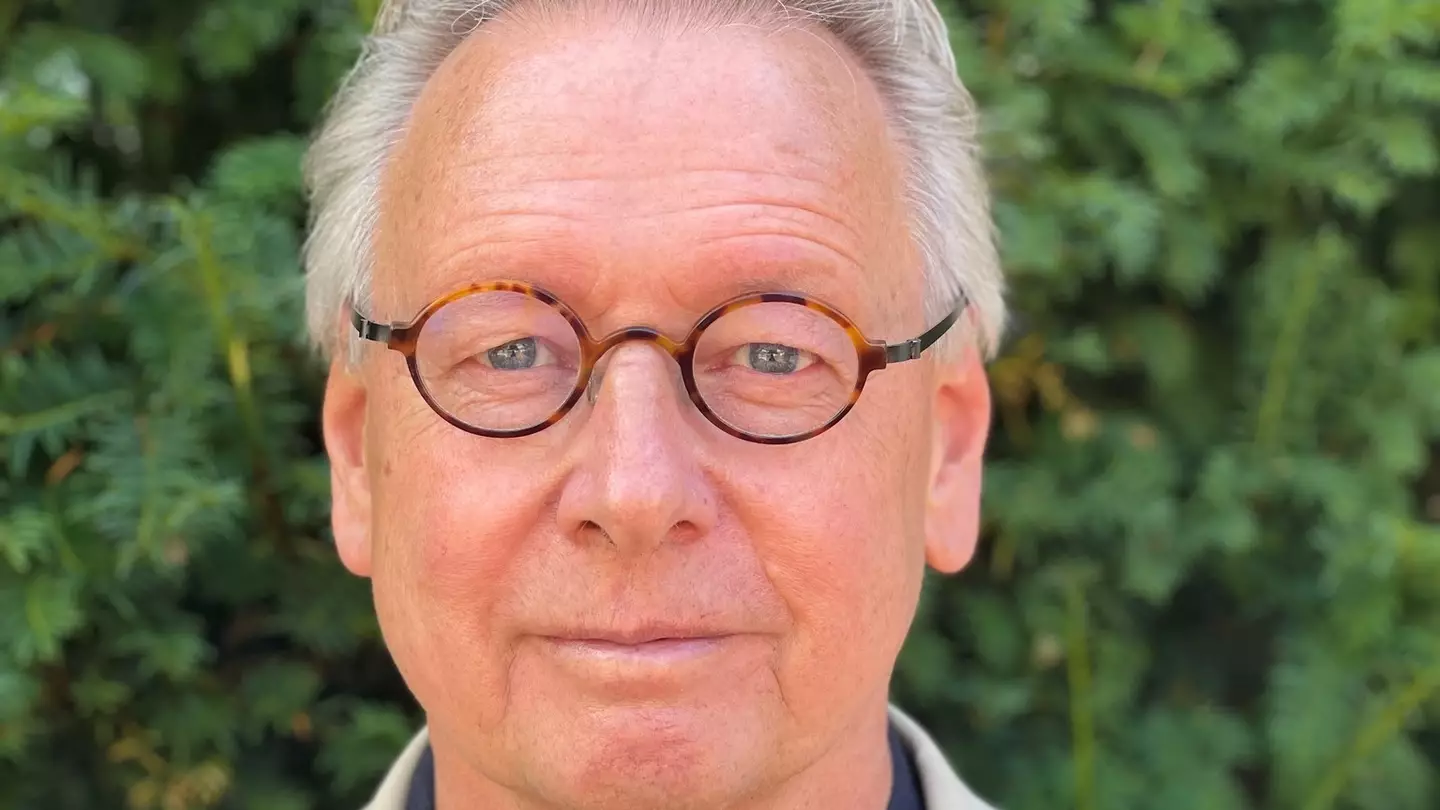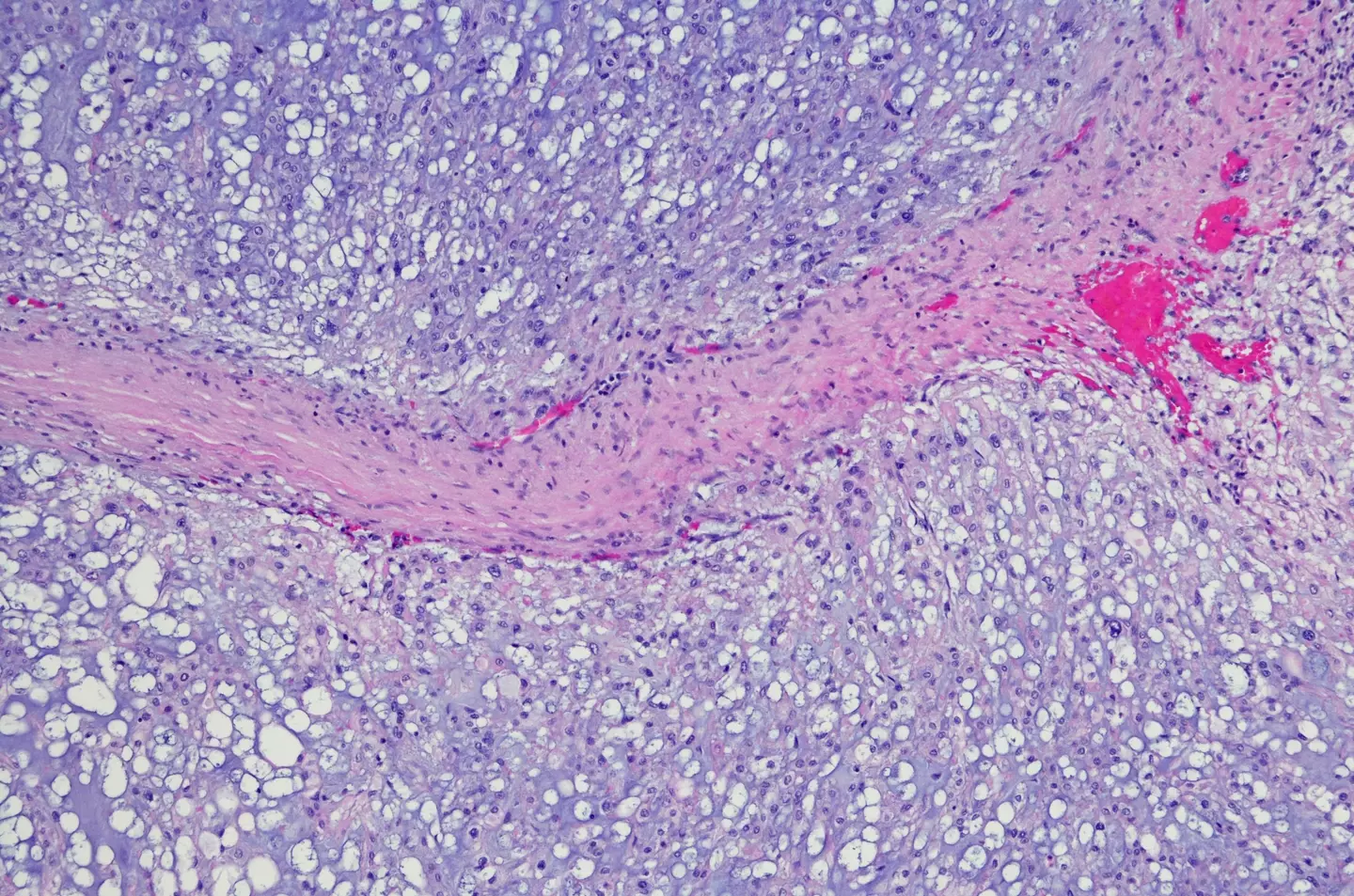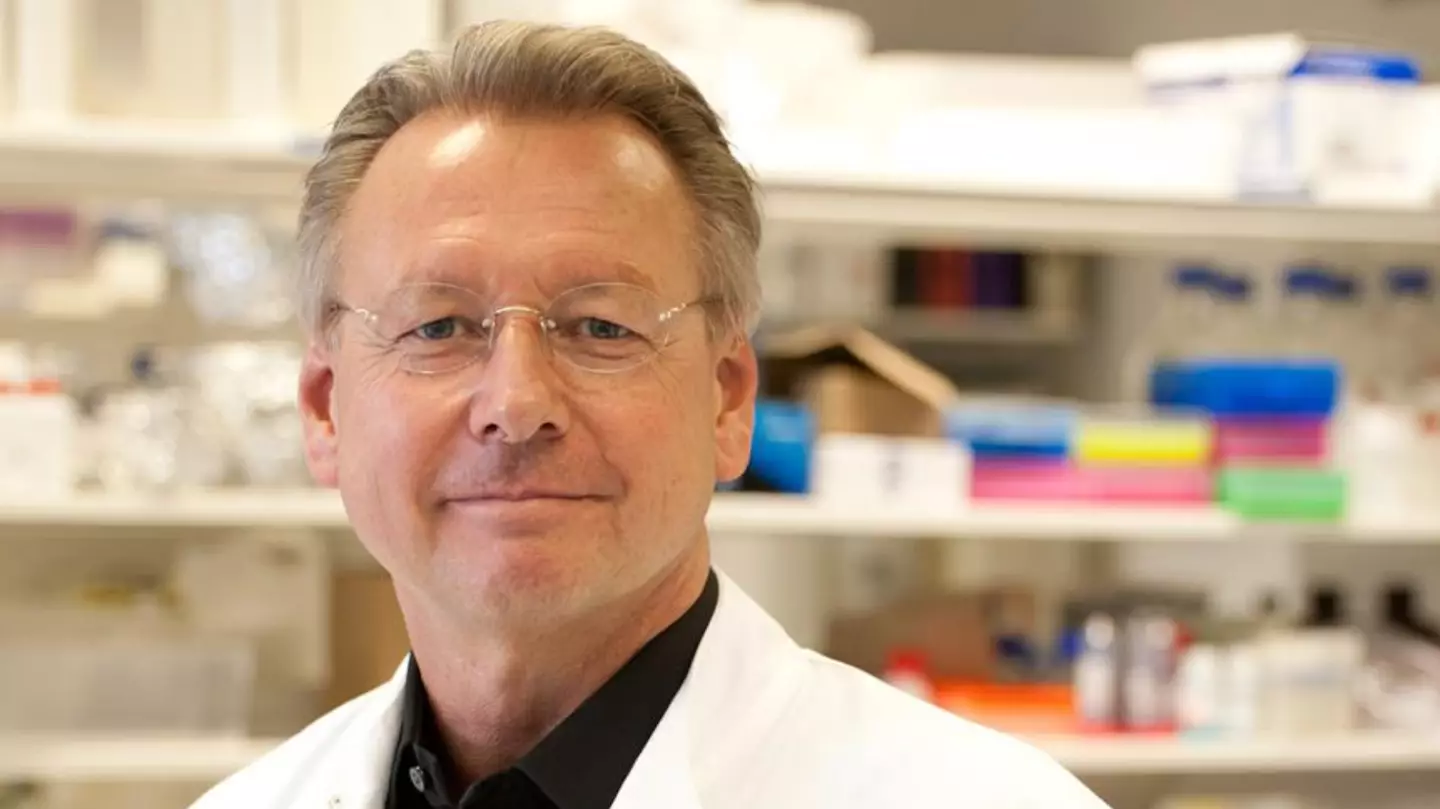
A British professor has revealed that a major breakthrough has been made when it comes to treating a rare form of bone cancer.
Professor Paul Workman was just 37-years-old when he lost his mother to a cancer known as chordoma, which is currently untreatable.
According to Cancer Research UK, chordoma is a rare and slow growing type of primary bone cancer, typically found in either the bottom of the spine or near the base of the skull. Globally, one in 1,000,000 people per year are diagnosed with chordoma.
Symptoms may very depending on the location of the tumour.
Advert

Current research suggests that chordomas are caused during the development of a baby's spine in the womb in which the notochord, a precursor to the spine, is replaced by bone. However, in some adults notochord cells may remain, which scientists believe cause chordoma.
"Thirty-six years ago, there was little we could do to treat chordoma. There was little understanding of the disease and no drugs were available to help my mother," Workman, who is the former President of London's Institute of Cancer Research, told The Observer in a new interview about his research.
READ MORE
X-RAY SHOWS WHY SINGLE BITE OF POPULAR THAI DISH CAN GIVE YOU LIVER CANCER
"It was utterly frustrating."
However, Professor Workman is now hoping a new study which he collaborated on could change the outlook for chordoma patients.
Published in the journal Nature Communications, the joint-study argues that a new understanding of a protein called brachyury - which is also found during the development of embryos - could be the key to unlocking potential treatments.
Put simply, researchers previously found that brachyury is 'essential' to the growth of chordoma tumours and has for years been 'considered undruggable' by scientists.

However, the new study claims to have found a way to around this, meaning that new treatments for aggressive cancers could now be on the horizon.
Workman noted that 'brachyury' may play a function in how certain cancers metastasise — which is were cancerous cells spread from a primary location to a secondary one.
Explaining the importance of how this breakthrough could impact future cancer treatments, he said: "Drugs that block its [brachyury] activities could also help to obstruct the spread of other cancers."
Reflecting on the personal significance of being involved in the research, he added: "It is thrilling to realise that I am now helping to do something about a disease that killed my mother."